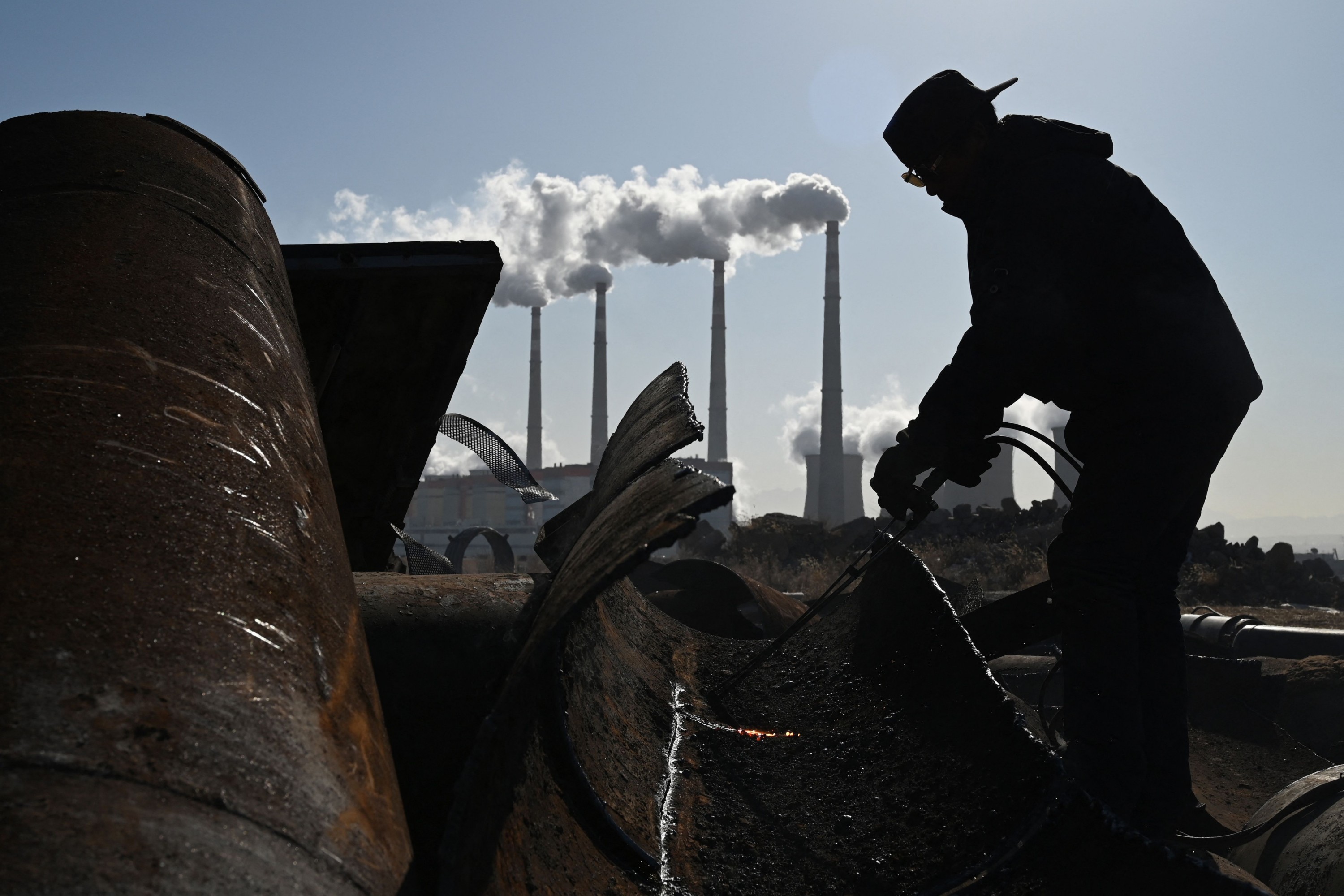China's emission cuts take a back seat to economic growth this year, say experts
Sign up now: Get ST's newsletters delivered to your inbox

China decided to forgo an energy intensity reduction target this year.
PHOTO: AFP
Follow topic:
BEIJING - In a break from its usual practice, China has not set a target for how much it intends to lower its energy intensity this year - a sign that Beijing could be prioritising economic growth over emission cuts for now.
Chinese Premier Li Keqiang said energy intensity reductions - referring to energy consumption per unit of economic output - would be assessed over the five-year period of 2021 to 2025 to allow for "appropriate flexibility".
Mr Li was presenting this year's government work report at the opening of China's annual legislative meetings, known as the Two Sessions or lianghui, in Beijing on Saturday (March 5).
The report this year did not contain any numerical targets for emissions cuts.
The decision not to set an energy intensity reduction target allows Beijing to "retain an appropriate level of flexibility, both providing reasonable leeway for energy consumption to ensure the steady performance of the economy, and urging local governments to maintain their energy conservation efforts", the National Development and Reform Commission, China's top economic planner, said in its economic plan, also released on Saturday.
Last year, Beijing set a goal to cut energy intensity by 3 per cent.
That same year, it released China's 14th Five Year Plan - its economic blueprint for 2021 to 2025 - which set a target of reducing energy intensity by 13.5 per cent from 2020 levels.
This year, Mr Li said Beijing set a gross domestic product growth target of "around 5.5 per cent", down from the 8.1 per cent that the Chinese economy achieved last year as it rebounded from the pandemic.
But he also said that hitting this year's growth target would require "arduous efforts".
Economic stability was a top priority this year, the Premier said, adding that the government would ensure "an adequate supply of electricity to... conduct normal business operations and production".
The move to replace coal with alternative energy sources would be done in a "well-ordered way", he said.
Beijing decided to forgo an energy intensity reduction target this year to avoid a repeat of the problems that arose in parts of the country due to power constraints last year, according to Pinpoint Asset Management chief economist Zhang Zhiwei.
The Premier "explicitly stated that flexibility in energy constraints" was allowed, Mr Zhang noted.
"The government clearly doesn't want energy constraints to be a problem this year, after they caused problems last year," he said.
Several Chinese provinces were hit by power cuts late last year because of a shortage of coal, triggering factory shutdowns and blackouts in homes. Beijing's climate goals were also blamed for triggering power rationing.
These factors and China's slowing economy have led Chinese leaders to take a more cautious approach to their pace of decarbonisation, experts say.
The signals from Mr Li in his government report on Saturday “open up more space for energy intensive growth”, said Mr Li Shuo, senior climate and energy policy analyst at Greenpeace East Asia.
“Ambition is being held back in light of the uncertainties in the world. Reinvigorated emphasis on energy security emerged late last year and it will become stronger now with the crisis in Ukraine,” he said.

